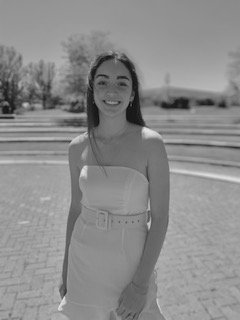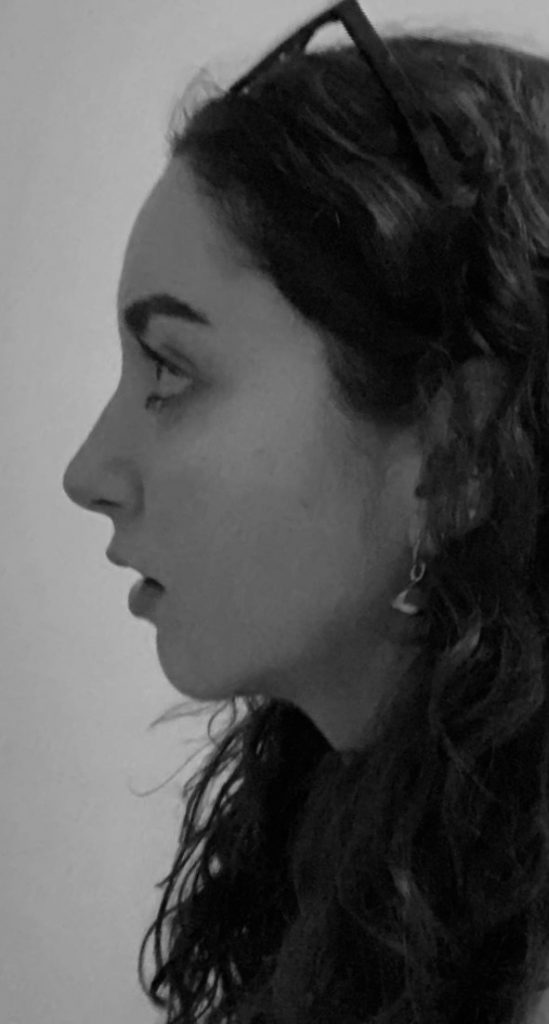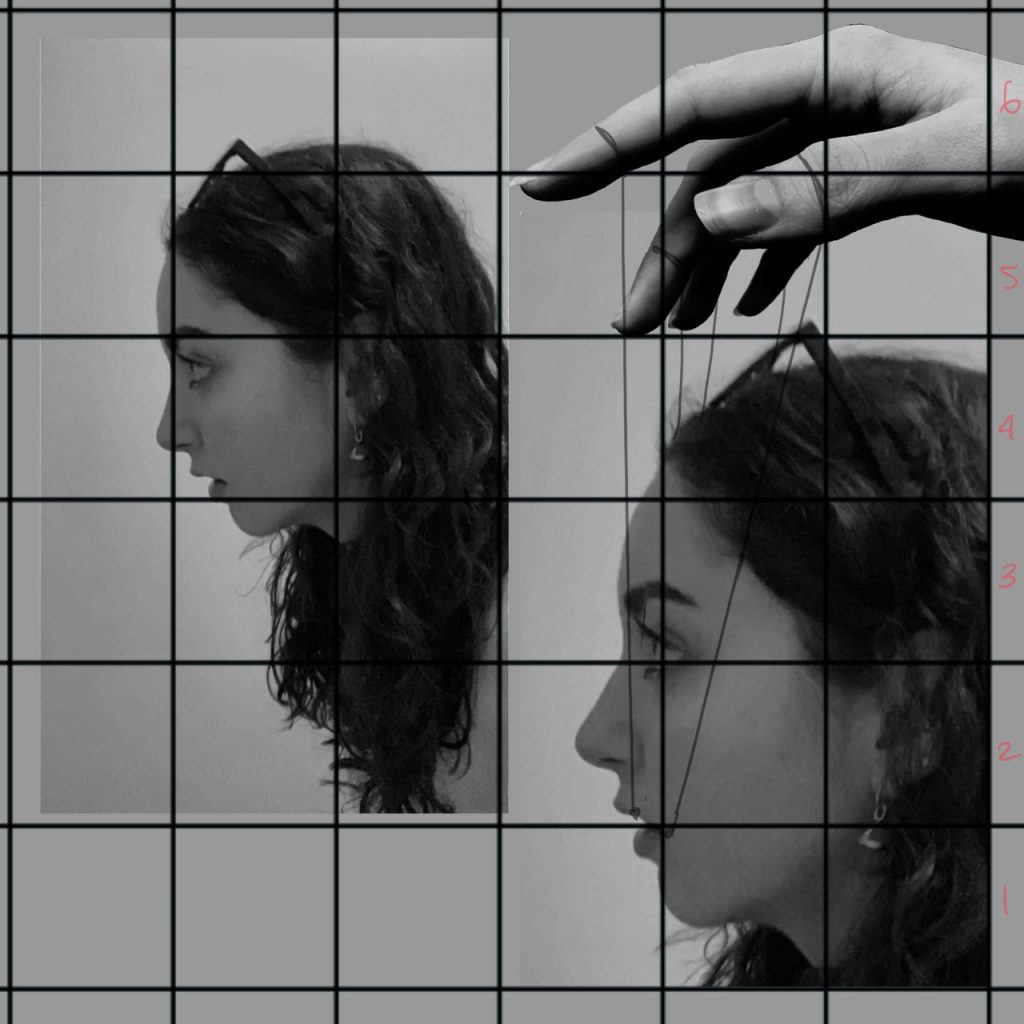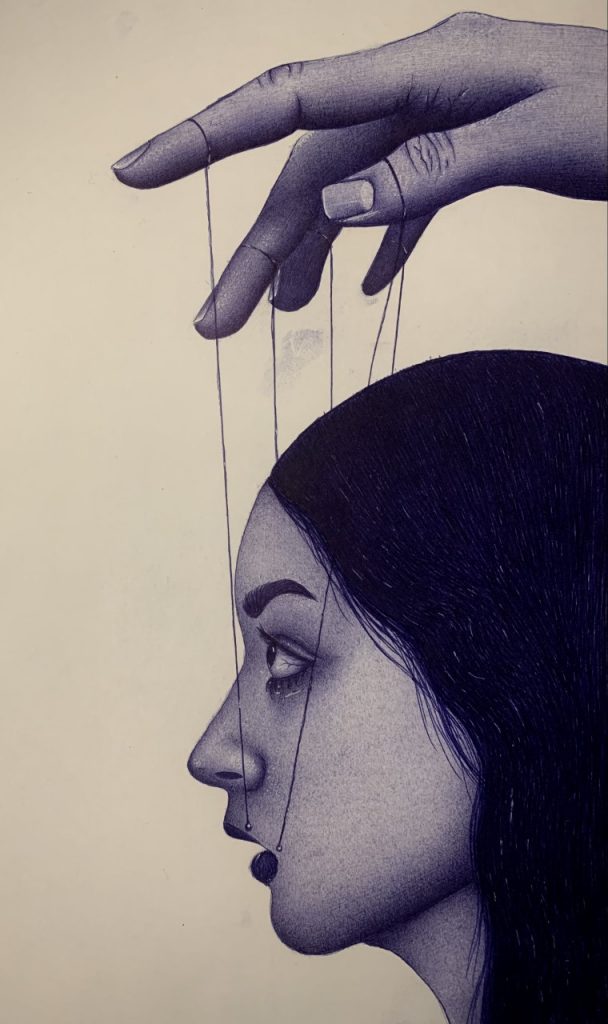Hello, my name is Lilly Pireva and I’m currently a sophomore at Loyola. I’m majoring in molecular neuroscience and minoring in Arabic. In the fall 2021 semester, I took an honors English class which focused on the problems in educational systems and the lives of those who were the unknowing victims to it. Our final was a research project, and we were given the choice of any topic as long as it related to education in some way. We were also given the choice of either writing a paper or taking a more creative approach, and as an artist I choose the latter option. Art holds a tremendous role in my life. I’ve been drawing since I could hold a pencil, and it has always been something that comes naturally to me. As I grew up, I was able to discover a lot about myself through my art, and it taught me that above all else, I am a creator and a deep thinker. I wanted to make a drawing for my final instead of writing a paper because I felt that it was a clearer way for me to communicate not just my findings on the topic I chose, but also the emotions I felt as I did my research.
For this final, my topic focused on the inequality of women’s education in the Middle East. I chose this region because I wanted the chance to take a look at the problematic parts of it and create something meaningful from what I learned. Initially, I was unsure of where to start with my drawing, because I had so many conflicting emotions about the topic that I could not fit them all into one singular piece. As I read research papers and TED talks and interviews about this topic, however, I realized that one of the most prominent emotions I experienced was the feeling of powerlessness. From my English class I learned that historically, educational systems throughout the USA were largely, if not fully, based on power and control – easy ways to indirectly and discreetly keep certain groups of people subordinate. With women being my primary group of focus, it was easy to see how knowledge could be used to disempower, especially in regions like the Middle East, where oftentimes traditional and religious values are used against women for the benefit of men. Issues like poverty, political conflicts, and war in this region are also factors that hinder the progression of girl’s and women’s education.
Although there have been vast improvements in refining women’s education in the Middle East and making it more accessible to different economic classes, there are many countries that still have shockingly low female literacy and education completion rates, despite the fact that countless studies have proved that countries with higher rates of education for their women have strong correlations with higher rates of financial independence, a growing economy, lower unemployment rates, lower infant mortality rates, and more.
For me, education has always been a way through which I can understand myself, what I believe in, and who I want to be. If I did not have the access to education that I was so very blessed to have while growing up, I would in no way be the person I am today. Knowing myself and the world around me is part of what gives me power, and it is heartbreaking to think that there are women in the world who may never get to truly know themselves and their potential due to a lack of education or an inequality in their education, simply because there are people in positions of power who believe that women are less valuable to society than men. To me, taking away someone’s education is equivalent to taking away their voice, their beliefs, their possible successes, and honestly, their chance at life. How can someone make anything of themselves if they were never given the chance to find the very words that describe who they are and who they want to be?
I chose to name this piece “Pulling Strings”, because I realized that women are often treated as if they are nothing more than puppets waiting for a puppet master to breathe life into them. I wanted to depict how giving someone an inferior education or taking away their chance to an education is the same as attaching invisible strings to them and controlling their every movement and thought. I used a blue Bic pen to make this drawing, as I have always had the sense that the monochromaticity of blue ink communicates the heaviness and pain of my art much more profoundly than any other medium I’ve used. Blue is a quiet and calming color, and it reminds me of silence. While silence can be a wonderful sound, it can also be incredibly sharp and unnerving. Women everywhere around the world, not just in the Middle East, are often silenced by men, and I wanted to show how painful and isolating that silence can be. I wanted to depict the reality of many girls and women in the Middle East who are forced to stay quiet due to the effects of unequal education or a lack of proper education.




